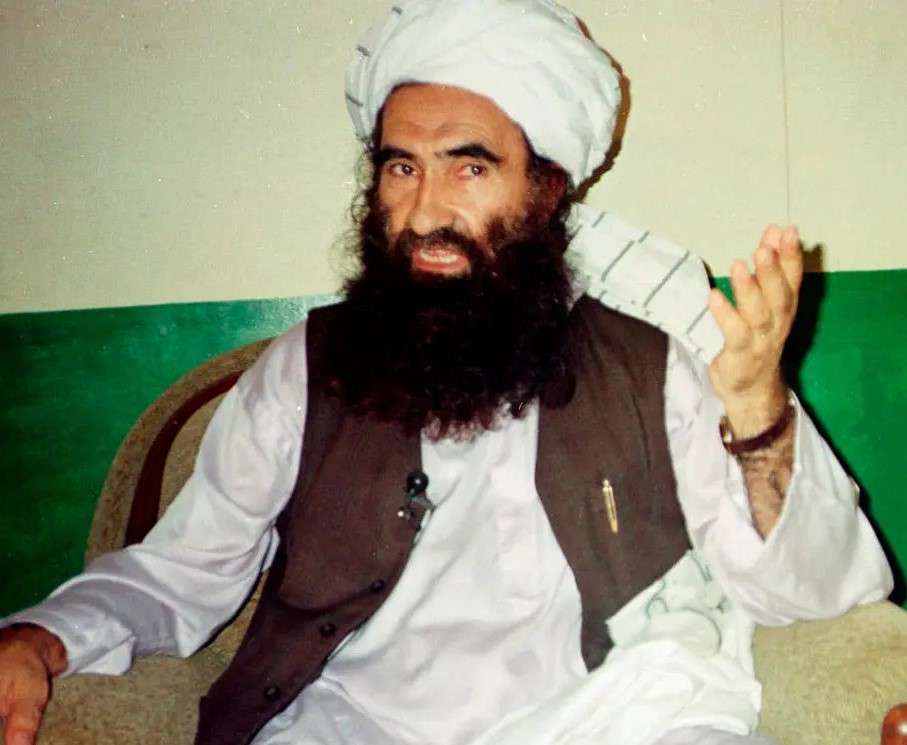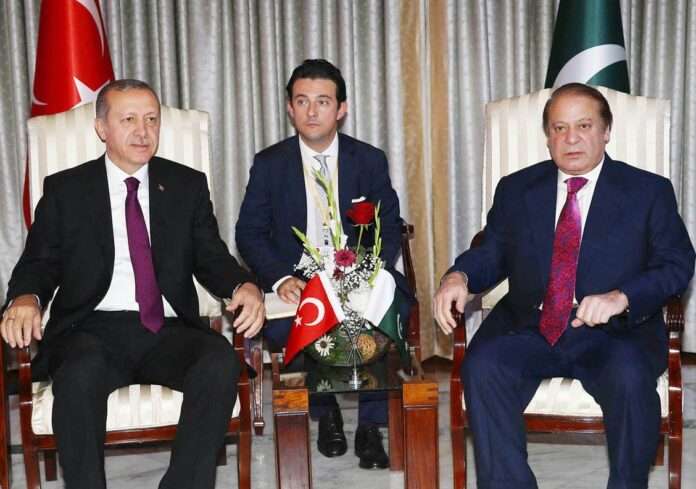President Erdogan and Prime Minister Nawaz Sharif, inter alia, discussed the prospects of the budding Afghan peace process during their meeting in Chaklala on August 01. Over the previous years Turkey has been taking keen interest in a negotiated settlement of the Afghan crisis; initiatives like Istanbul, Ankara and Heart of Asia processes are just some of Turkey’s creativities. This matter was also discussed during a meeting between the US Special Representatives Daniel Feldman and Army Chief General Raheel Sharif. Participants of both these meetings have expressed the hope that the talks would resume soon.
Pakistan is making an all-out effort for reopening of talks between the Afghan government and Taliban. However, it will take quite some time before the process could restart. Mullah Akhtar Mansoor needs time to widen his support base and establish his authority. In his first audio message, the new leader has radiated mixed impressions on the peace process. While calling peace talks the enemy’s propaganda, he retained the option of negotiations alongside armed struggle. The fact that the Afghan Taliban are divided over Mullah Mansoor’s ascendency is one reason among many others which could delay the peace process. Therefore, he may not opt for early resumption of talks.
The Taliban are facing their biggest challenge and the death of Mullah Omar is certainly a strategic blow to the outfit. His charismatic stature had kept the group together and effective; his successor is not likely to attract the same esteem. Reports indicate that many senior Taliban commanders are not satisfied with the new ‘Supreme Leader’. The paramount question haunting the strategists is whether the movement would survive as a cohesive force, or splinter out around at least half a dozen second tier leaders vying for power. Historical record of Afghan militant leadership supports the notion that there could be some fissures; especially so when Mullah Omar’s family, too, has refused to pledge allegiance to him, until he is unanimously elected.
Several members of the Taliban Supreme Council boycotted the meeting summoned to finalize the name of the new leader. Mansoor’s election is likely to widen an internal split between the factions who favour negotiations with the Afghan government and those who want to continue their armed struggle. Some senior Taliban leaders, who were in Islamabad for the second round of peace talks, also opposed the outcome of the meeting. “Mansoor is not the leader of the whole Taliban, but only of his faction,” a senior Taliban leader commented.
For now, the Taliban movement seems to be divided into three groups. One group is led by Abdul Qayum Zakir. Omar’s son and brother are backing Zakir, who, according to a Taliban leader, was sacked as the military commission’s head last year after he challenged Mansoor to prove Omar was alive. The second group is gravitated around Muhammad Rasool, who was very close to Omar and served as the Nimroz province governor during the Taliban regime. The third group is led by former finance minister, Mutasim Agha Jan; he lives in the UAE and favours the peace talks. Eventually, Mullah Omar’s eldest son Yaqoob may also choose to lead his own group.
Some Taliban leaders credit Mansoor for running the Taliban movement efficiently in the absence of Omar. However, while serving as acting chief, Mansoor has been facing opposition because of his decisions. He was also criticized for keeping the news of Omar’s death secret for over two years. The head of the Taliban’s Qatar political office, Syed Tayyeb Agha, has also reportedly opposed Mansoor’s election. Another Qatar office member, Qari Deen Muhammad, also did not endorse the nomination.

The Afghan Taliban confirmed Mullah Omar’s death shortly after the powerful Taliban leadership council chose Mullah Mansoor as the new supreme leader. The statement, issued on July 30, says “his [Mullah Omar’s] health condition deteriorated in the last two weeks” and “not for a single day did he go to Pakistan”. “After (Omar´s) death the leadership council and Islamic scholars of the country, after long consultations, appointed his close and trusted friend and his former deputy Mullah Akhtar Mansour as the leader,” the statement added. “The council also elected Sirajuddin Haqqani [head of Haqqani faction], as deputy of the Taliban’s leader.” The other elected deputy is Maulavi Haibatullah, the Islami Emirate era chief justice and head of its religious Ulema council. Though the leadership transition appears smooth, the trouble may not be far away.
Prominent figures within the Taliban movement have been divided on whether and how to pursue a peace deal. Key field commanders have been criticizing the peace process and vowed to fight for power, rather than negotiating. Several have left the movement altogether, pledging allegiance to Islamic State in the Middle East and targeting the Taliban. The Taliban’s media organ which largely reflects Mullah Mansoor’s position, has repeatedly rejected peace efforts sans Qatar-based political commission. The first round in Murree did not include the representatives from the Qatar office.
Pakistan’s Foreign Ministry said that following a request from the Taliban side, the planned talks (second round of Murree talks scheduled on July 31) have been postponed indefinitely. “In view of the reports regarding the death of Mullah Omar and the resulting uncertainty, the second round of the Afghan peace talks, is being postponed,” Pakistan Foreign Office said in a statement. Pakistan and other friendly countries of Afghanistan hope that the Taliban leadership will stay engaged in the process of peace talks in order to promote a lasting peace in Afghanistan, the FO statement added. “Those forces, which due to their malafide intent wanted to undermine the peace talks, will not succeed in their designs,” it hoped. “The Afghan government is upset on the delay of talks but is committed to the continuation of the negotiation,” a senior Afghan official said. “The government of Afghanistan hopes that the process will soon resume.”
The leak by Afghanistan’s National Directorate of Security (NDS) coming immediately after President Ashraf Ghani’s meeting on the state of national security took both Pakistan as well as the Afghan Taliban by surprise. For the Afghan government, there are major questions. News of the death was leaked by elements within the Afghan state on the eve of second round of direct talks in Pakistan— it could benefit whom and to what end? Surely, this could not suit the pro-peace faction of the Afghan state. NDS, heavily infested by Indian influence, is known for its opposition to peace process and flourishing good relations between Afghanistan and Pakistan.
The US administration, while describing reports of Mullah Omar’s death as credible, has urged the Taliban to stay engaged with the Afghan government. “The United States continues to support an Afghan-led and Afghan-owned peace process as the surest way to end violence and ensure lasting stability in Afghanistan and the region…“We and our international partners will continue to strongly support Afghan President Ashraf Ghani and the National Unity Government to improve Afghanistan’s security.”
Notwithstanding the controversy surrounding the death of the two iconic leaders of Taliban movement, there is a silver lining that successors to both departed leaders are known for their pro-peace commitment. Though all is not well on the Taliban side, hopefully, Siraj and Mansur will be able to carry along the major chunk of Taliban towards Murree peace process. The good omen is that Mansoor, who has been the defacto leader for quite some time now, is a pro-peace process leader and he is also keen to include the Doha peace commission into the Murree peace process. Appointment of new leadership may help foster a semblance of unity within the Taliban; Mansoor’s appointment was any way unlikely to please everyone in the Taliban community.




